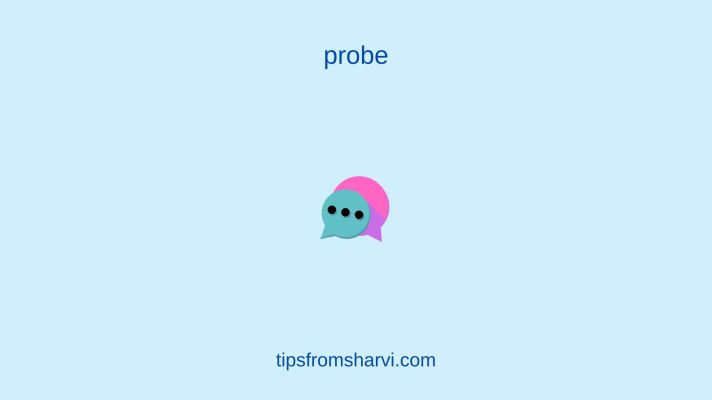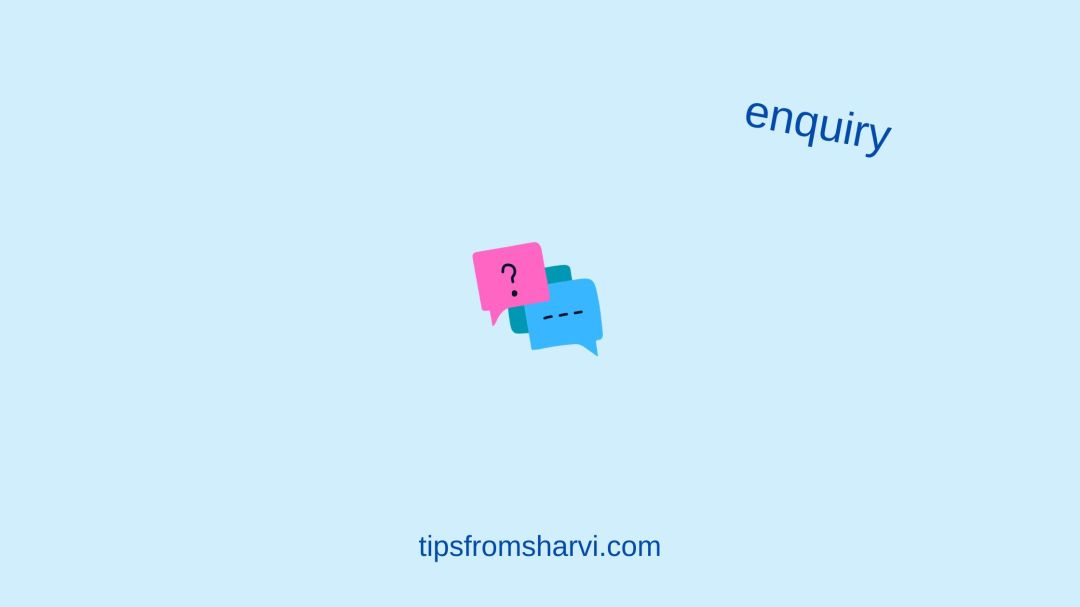Are you inquisitive or nosy? Being curious can support success. Be it in personal or professional life, asking the right questions can be decisive.
In my article, I’ll highlight how adopting an inquisitive approach is often helpful. I’ll start with an example of general personal life. I’ll then move to solopreneurs for professional life.
It’s no secret that being nosy is often despised. No one likes an interfering person. However, there are also reasons to be curious.
Is being inquisitive negative or positive?
I enjoyed a famous quote. It has some good humor Simultaneously, with so much wisdom!
“The man who asks a question is a fool for a minute, the man who does not ask is a fool for life.” ― Confucius (on googreads.com)
Inquisitive vs nosy
Is being inquisitive a good thing? There could be different opinions. The answer may differ from person to person.
There are times when asking questions is crucial. You need information for better decision-making. On the other hand, being too prying can result in disgust.
Personal life
1. Personality types
Extroverts are known to be talkative. Introverts often prefer being on their own. As an ambivert, I need enough me-time.
Some people enjoy small talk more than others. They ask for many details. On the other hand, others might avoid getting too personal.
Communication is important and aids better relationships. Even among close ones at home, there could be differences. For example, one family member might feel that they need more privacy than the others.
Depending on your personality type, you may either be talkative or not. You could find that others intrude when they’re unwelcome. However, there are also valid reasons to question.
Professional life
2. Value active listening
While you make a query, be a good listener. Your interlocutor may feel displeased about being questioned. Showing politeness and being an active listener helps.
Encourage the other person to express themself. Show understanding, and use proper body language. Be thankful for their time and help.
Let’s say you’re a solopreneur life coach. If you hesitate to find out, you’ll find difficulty doing your work. Your client needs your support and opening up is natural.
3. Critical thinking benefits
Critical thinking is a great approach. Analyze and find different options. Choose the best for success.
Being inquisitive when pursuing improvement is key. If you don’t take a step back and observe, you’ll miss out. To find ideas and facts, ask questions.
Would you like to find out more? I have another published post. Read about the benefits of critical thinking.
4. Inquisitive is a skill
There may sometimes be gatekeepers to stop you from accessing information. These are examples of barriers. Being tactful (if not assertive) can help.
Being thirsty for information can serve you in life. If you need data, it’s no shame to ask. Persevering is often what can make you a winner.
Encourage yourself to take action. Ask to know more. If you don’t, you may lose opportunities.
5. Celebrate lifelong learning
If you’re inquisitive to learn, that’s great! Learning is an ongoing process. Adopt and enjoy it.
Motivation comes from inspiration. However, zest can decrease over time. Self-discipline supports you better in slaying your goals.
Curiosity is more stable than passion. Passion dies out. Read my other article to find the advantages of being curious when it comes to learning.

6. Questions expand mind
Ask relevant questions to the right person, at the right time. Staying ignorant never helps. Being uninformed is like setting yourself up for failure.
Find out what’s missing. If you lack knowledge about a topic, take action to enrich yourself. High-quality decision-making requires having access to enough data. Read my post on how to enlighten yourself.
7. Discover new perspectives
Ask for help from others. Brainstorm with a team to find ideas. Get out of your comfort zone, if needed.
Being a solopreneur blogger, I network mostly online. Facebook groups are often helpful to start conversations with other content creators. It’s convenient and time-saving.
8. Problem-solving needs
You might be unable to solve issues all alone. Ask others who are concerned. With more facts, you’ll be better equipped.
Use tools and frameworks as well. Proven methods support better results. Input data that you collect from others.
There may be points that you’ve missed. Take a complete audit of circumstances for a better view. Read my article on using the six thinking hats technique.
I’ve used frameworks many times. They enable me to think and analyze things in a structured manner. Doing so brings better blogging results.
9. Awareness of surroundings
Be spot on, as far as possible. In addition to quantitative data, qualitative data is very helpful. Know what people feel and think. These could have an impact.
Statistical insights could be available. However, have a conversation with the right people as well. Informal things can influence progress and success.
Give due importance to what team members have to say. If a leader, it’s your responsibility. Doing so can also ensure better team results.
10. Control over things
Ascertaining gives a clearer picture. You can have a better, and hopefully, complete view of things. This, in turn, can boost your self-confidence.
Make decisions confidently, and mitigate risks. On the other hand, when you lack knowledge, it could cost you much. You could lose monetary and non-monetary resources.
Cons
So far in my article, I’ve focused on the benefits. There are also cons of overdoing things. People could potentially show resistance.
Some brief arguments against being nosy are:
- Disliked by others
- Perceived as annoying
- Interference
- Spying
- Gossiping
- Time-consuming
- Distracting
Balance both reasonably
Would you have to vote for one option? However, it’s not as simple as saying yes or no to inquisitiveness. There are both sides, the pros and the cons.
When having to find out from others, be reasonable. If ever faced with a person who needs help, try to be supportive. You never know who could lend you a helping hand in the future.
Have your aim in mind, what you want to achieve. Strike a good balance, based on the situation. For example, being curious enough to stay updated, while not interfering sounds good to me. It’s a subjective decision to make.
Conclusion
Being inquisitive or nosy could be seen as the same. However, don’t cross the line. Find a good balance.
Seek information when relevant. Be willing to help others out as well. Don’t miss out on opportunities in your personal and professional life.


This is a very helpful post. Thanks for sharing.
LikeLiked by 2 people
Thanks, Brittny. Enjoy your day!
LikeLiked by 1 person
Thank you!!!! You too.
LikeLiked by 1 person
There’s a cultural element to this as well. In Turkey, it is very common and thought not to be intrusive for people to ask personal questions (how old are you, are you married, what’s your favorite football team, etc) to people they’ve just met. As an American expat, I had to adjust to their harmless curiosity which in the US would be considered rude. I’ve noticed this to be true among many Asian students as well when teaching ESL in the US.
LikeLiked by 1 person
Thanks for your thoughts on the topic. Have a terrific day!
LikeLiked by 1 person
You are most welcome.
LikeLiked by 1 person
I think you make a lot of important points, Sharvi. Being curious is always a positive – curious children tend to learn far more than children, who for some reason no longer are actively questioning the world in which they live. Being nosy is always not so positive – for nosy people generally are trying to prise information about others that gives them a sense of control or superiority. The two are used interchangeably by those perpetrating injustices or breaking the law when curious people are trying to uncover injustices and the lawbreakers are seeking to smear their motivations.
LikeLiked by 1 person
Thanks for your thoughts on the topic. Have a wonderful day!
LikeLiked by 1 person
Yes I think curiosity is very important and helpful. However, there is a big difference between being curious about the personal life of people you are not close friends with and things like how the world works, what is true about important subjects, and work-related items.
I’ve noticed that some people are “anti-curious” about certain things. They don’t want to know facts that could contradict something they believe and they get angry if you tell them, or even if they just come across such information. In those cases, you have to be very careful with what you say.
LikeLiked by 2 people
Thanks for your comment on the topic. Have a brilliant day!
LikeLiked by 1 person